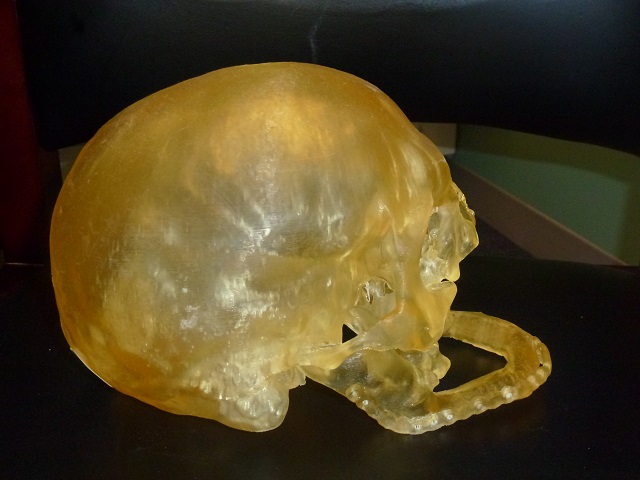
Scientists are using 3D printing technology and computed tomography (CT) imaging to reproduce models of patients' heads to guide human face transplants.
Doctors at Brigham and Women's Hospital in Boston carried out the first full-face transplantation procedure in 2011 and have performed four more human face transplants since. The surgery was carried out on patients who lost all or part of their face as a result of disease or injury.
Face transplantation surgery is a complicated procedure and requires meticulous planning. Using 3D printed models, such procedures can now be planned effectively.
Before the surgery, each transplant recipient underwent 3D visualization and CT scanning procedures. In order to create life-size model of the skull, the CT images of the recipient’s head were divided and then processed using customized software in order to produce unique data files, which were later fed into a 3D printer. In certain cases, the facial bones of the recipient had to be modified before transplantation, so the procedure is performed as smoothly as possible.
Although the entire face transplantation procedure takes 25 hours to complete, the vascular connections from the donor to the recipient’s face takes about one hour, during which time the blood flow of the patient has to be stopped.
Using a 3D model makes the result of the transplant procedure more cosmetically appealing. In addition, using these models surgeons are able to gain a better understanding of the structure of the recipient's face during the surgery.
You can spin, rotate and scroll through as many CT images as you want but there's no substitute for having the real thing in your hand. The ability to work with the model gives you an unprecedented level of reassurance and confidence in the procedure.
Frank J. Rybicki, M.D., Radiologist and Director at Brigham and Women's Hospital in Boston
Following on from this research project, Brigham and Women's Hospital is using 3D printing technology in its face transplantation surgeries and 3D printed models may an application in other complicated procedures.